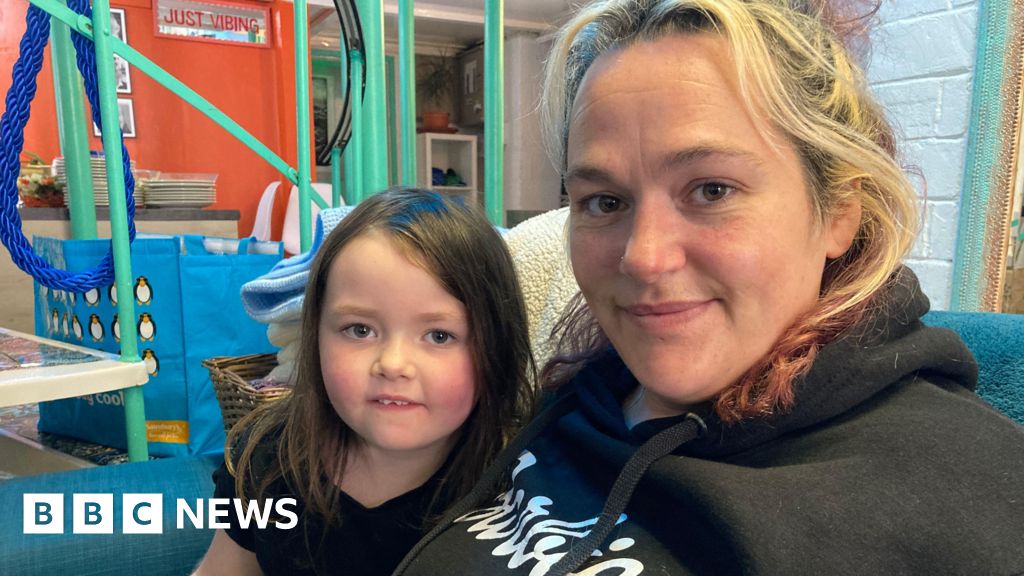Running Hong Kong’s stock exchange was never going to be an easy job for Nicolas Aguzin, but some who worked with the former star JPMorgan banker say the task was not helped by some of his more unconventional ideas.
Months after joining Hong Kong Exchanges and Clearing as chief executive in May 2021, Aguzin proposed that it should award “tokens” to listed companies based on how diverse their boards were.
Modelled partly on crypto and partly on carbon credits, “Project Diamond” would compel companies with all-male boards to either appoint women or buy tokens from those that had.
Several people who heard the pitch recoiled, saying privately it brought a new meaning to the phrase “token women”. Asked by the Financial Times about the scheme, HKEX, which announced last week that Aguzin would step down in May, said it “was not prioritised for development”.
More than two years on from Aguzin’s appointment, Hong Kong is struggling to maintain its status as an important financial hub amid the Chinese economy’s disappointing post-pandemic recovery and rising tensions between Beijing and Washington.
Aguzin’s critics say the diversity token idea, and his decision in 2021 to invite the now-disgraced FTX founder Sam Bankman-Fried to address the exchange’s leaders, were small, early episodes that signalled he might not be the right man to lead the exchange through one of its most difficult periods.
Appointing Aguzin to the job at the heart of Hong Kong’s financial establishment was a bold bet that a consummate salesman who had risen quickly through the ranks of the US investment bank could help it attract listings and capital from around the world.
Just weeks after the arrival of Aguzin — an Argentine nicknamed “Gucho” who does not speak Chinese and was the first non-Hong Kong or mainland citizen to take the role — Beijing tightened control over China’s technology and private education sectors. The crackdown wiped more than a trillion dollars from the value of internationally listed companies and reduced appetite for the mainland stocks that dominate Hong Kong’s market.
HKEX’s share price has dropped 40 per cent since Aguzin joined and it has fallen from being the world’s most valuable publicly listed exchange to one that trails rivals CME and Intercontinental Exchange. Meanwhile, the total market capitalisation of all companies listed on India’s stock exchange is poised to surpass that of those on Hong Kong’s.
Aguzin’s supporters say he has initiated important reforms and raised HKEX’s profile worldwide, despite facing difficulties far beyond his control. International investors are “running as far as they can from China [and] it’s inevitable that the Hong Kong capital markets were going to be badly affected by that”, an adviser to HKEX said.
“I don’t think anybody else in that job would’ve done any better.”
Hong Kong initial public offerings by Chinese companies — which helped propel HKEX to its best-ever quarterly profit the month before Aguzin joined — have plunged since July 2021, when Beijing regulators halted offshore listings by start-ups that hold large amounts of user data.
Hong Kong IPOs have raised just $5.3bn this year, according to data from Dealogic, putting the market on track for its smallest annual haul in 22 years.

The Hong Kong government, HKEX’s biggest shareholder, said in August it was setting up a “task force” to make market liquidity “improvement proposals” to the city’s chief executive, John Lee.
Aguzin’s position had already weakened by then. John Buckley, who Aguzin brought from JPMorgan to oversee what he called “transformation” at the exchange, departed in November 2022 after less than a year. He was one of several senior figures hired under Aguzin to leave after a short time.
Buckley, backed by Aguzin, had sought to improve HKEX’s ageing IT infrastructure and internal processes, an unglamorous task but one deemed necessary to help compete with rivals worldwide.
But some insiders resented the involvement of McKinsey consultants, hired to help with the process, and others thought Buckley was moving too fast.
“The organisation had no capacity to change at that velocity, and the appetite from the board was approximately zero,” an adviser to HKEX said. After Buckley left, “internal communication was a lot less about transformation . . . that whole initiative got parked quickly”, said a former employee.
In January, Bonnie Chan, now named as Aguzin’s successor, replaced Buckley as co-chief operating officer. The heads of several major business units report to the co-COOs rather than directly to the chief executive.
Aguzin had spent much of his time being “an ambassador for the firm” rather than a hands-on manager, a former employee said. He had been “travelling the world and highlighting that Hong Kong is open for business . . . he is super enthusiastic for the mission”.
“I am very proud of the strategic initiatives and achievements that HKEX has delivered since I joined,” Aguzin said in a statement.
He said the exchange had “continued to deliver” despite “significant headwinds” and had “implemented crucial infrastructure changes that will position HKEX for continued success for decades to come”.
HKEX, which also owns the London Metal Exchange, said it had made “significant strategic progress” in the last two and half years, including on programmes to extend connections between mainland China and international markets.
“Global markets have been weak, but the group has reported some of its best results ever, driven by the company’s strategic diversification and its strong financial management,” it said.
HKEX points to new offices in New York and London, as well as dual-listings agreements with bourses in Saudi Arabia and Indonesia as evidence of a rising international profile. But non-Chinese listings account for just 6.6 per cent of funds raised on Hong Kong’s stock exchange since the start of 2022, little changed from previous years, according to data from Dealogic.

Chan, a lawyer with a master’s degree from Harvard, has a lower international profile than Aguzin. As co-COO, her responsibilities include strategy and “mainland development”. She is “sensible and intellectually rigorous . . . not necessarily a very dominant leader”, a person who has worked with her said.
Chan will take the helm at HKEX at a time when Hong Kong’s standing as a finance centre is precarious. “From our industry’s perspective and from Hong Kong’s role as an international financial centre, we have our work cut out for us,” said Robert Lee, a Hong Kong lawmaker representing the financial services sector. He said Chan was “helpful, good at communicating, and . . . receptive and open to listening to ideas.”
One executive departing the exchange recently warned colleagues that HKEX was at risk of losing importance to mainland China. Ongoing reforms to mainland financial market infrastructure “could further tilt the balance of influence” away from the territory, the executive said in a document shared with colleagues shortly before they left.
“Any discussion of HKEX strategy should keep in mind that, when viewed from a mainland vantage point, [Hong Kong] may appear smaller and smaller every year regardless of how big we might feel,” they said.
Additional reporting by Joshua Oliver in London and Chan Ho-him in Hong Kong
Credit: Source link











